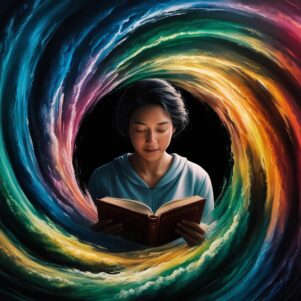Do You Want to Time Travel? Or the Power of Historical Fiction
Article By Gilad Sommer
 Since the early days of science fiction, man has been dreaming of building a time machine.
Since the early days of science fiction, man has been dreaming of building a time machine.
But what if I told you time machines are accessible to everyone, and that they require even less energy than a smartphone?
I am referring to books, and specifically books of historical fiction. Not only are they time machines, but they are also consciousness machines because they can project our consciousness into a body that had lived at a different time and place than ours.
Historical fiction is defined as a literary genre that takes place in the context of real historical events. In other words, it tells a fictional story about something that happened at some point in human history, often integrating real historical events and real-life characters. Historical fiction books stretch the limits of our consciousness, allowing us to experience a strange and foreign worldview. They plop us out of our “moral aquarium” – the set of beliefs and customs we have adopted as a result of growing up in our specific time and place.
When you read historical fiction, you discover:
- That you are mysteriously attracted to certain times and places in history…
- That it is the best way to learn history because you learn without noticing. The characters of history are no longer dry names in an academic history book but are real flesh and blood people you learn to love and/or hate. You also learn to see these characters from different perspectives, realising that the great figures of history (and perhaps all human beings) are complex and multi-layered.
- That beyond our differences, humanity is one. We can empathise with a Roman mason, a Chinese concubine, an English king, even though it may seem we have nothing in common with them. We realise that we share something essential, something that goes beyond time and space.
- That some values are universal, and that evil can take many forms, but it is essentially very similar, and that while people are nuanced and things are rarely black or white, there are certain behaviours that have always been scorned – cowardice, betrayal, mediocrity, to name a few.
- That human trials are universal; that all human beings have experienced heartbreak and disappointment. As the American writer and civil right activist James Baldwin wrote, “You think your pain and heartbreak are unprecedented in the history of the world, but then you read.” Like the Buddha taught, suffering is inherent to life, and historical fiction makes that truth clearly present. All human beings have seen their dreams turn to ashes. But at the same time human beings have also seen their dreams reborn like the phoenix from the ashes, to be better and greater.
- That the darkest times are also times when light is seen more clearly and that true natures are revealed in difficult times. That is why one of the most popular historical backgrounds for historical fiction is WWII. On the background of the terrible deeds of the times, even small deeds of moral courage and generosity shine brightly.
- That great historical events become almost like myths that can be told and retold from different angles and by different storytellers, shining a new light each time, and helping us discover something in these events that is truthful and eternal.
But are historical fiction books really a reflection of the time they are discussing or are they figments of the writer’s imagination, distorting our understanding of history?
Clearly, taking excessive liberties with historical fiction has its dangers, especially with our current lack of historical consciousness. People who lack basic historical education may accept fictional exaggerations or inventions to be the actual historical truth, and that could lead to a false understanding of the present.
That is why fidelity is an essential characteristic of a good historical fiction writer – the desire to be as loyal to the historical truth as possible, taking into account that our knowledge of history is naturally limited. Good historical fiction writers research their subject matter meticulously; they are sometimes more familiar with the time they are writing on than their own times. And their readers tend to be very demanding when it comes to getting the historical details correctly.
Nevertheless, one could argue that the writer’s bias distorts history, and that when we are reading historical fiction we are not really experiencing history as it was but rather history through the prism of the writer. That may be true, but let us take into account that our own historical reality, our contemporary world is presented to us through numerous lens and perspectives, to the degree that we are not even sure what is going on today.
Our perception of Reality is always an interpretation we and our fellow human beings make. We rarely experience Reality as-it-is, but rather our version of reality, which could be more or less distorted, depending on our capacity for objectivity.
That is why what is important in historical fiction is not whether the story told really took place, but whether it could have taken place. With good historical fiction, one feels that the writer is not only imagining the story but in some way remembering it.
Every fiction at some point becomes historical fiction, just as every present moment becomes a part of history. What we live today may and will seem odd and unfamiliar to our future descendants; as strange as it may seem, our beliefs and systems will one day be relics of a past long forgotten.
That is another thing we learn when we read historical fiction; our truths are not absolute, they are only milestones on our journey to THE Truth.
Image Credits: Image created via Canva Dream Lab (AI)
The entity posting this article assumes the responsibility that images used in this article have the requisite permissionsImage References
Image created via Canva Dream Lab (AI)
Permissions required for the publishing of this article have been obtained




What do you think?